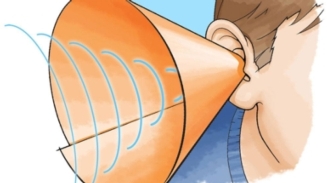
人耳能分辨出高品质音乐吗
Human Ears Can Hear Better-Than-CD Quality (Just Barely)
人耳能分辨出高品质音乐吗
Listeners can tell the difference between CD-quality music and better-than-CD quality—but only if they train their ears first.
经过一定的训练,人们能够分辨出CD品质和高于CD品质的音乐之间的差异。
播音/撰文 Christopher Intagliata
翻译 Meatle
审校 吴非
Jay Z's "Tidal" platform promises listeners CD-quality streaming music, in all its 44.1 kilohertz, 16 bit glory—much better, they say, than compressed files, like mp3s. But why stop there? Neil Young's PonoMusic Store sells music that's even better than CD quality.
Jay Z的Tidal平台承诺为用户提供CD品质的流媒体音乐,该网站认为,这类44.1 kHz采样率,16 bit位宽的音乐的音质远好于mp3的音乐。那为什么要止步于此呢?因此有了Neil Young的PonoMusic平台,在那里我们能买到比CD品质更好的音乐。
In a YouTube video for the service Young compares mp3 listeners to scuba divers, muddling around the seafloor. "You know you're walking around in the murk and there's big fish down there, that's kind of like listening to an mp3."
在一段YouTube视频中,Young将听mp 3格式的音乐比作穿戴潜水装备,在海底听音乐。“你就像在漆黑中摸索,并且可能还会遇到危险的大鱼。这就是你听mp3格式音乐的感觉。”
CD listeners are underwater, too. The only way to rise to the top, he says, is to dial up sample rate to over four times that of CD: to 192 kilohertz. "When you make it to 192, you actually break through the surface, and you're breathing air. And the feeling is different, it actually is a visceral relief. You feel good."
他认为听CD品质的音乐也如同是在水里听。而回到水面上的唯一方法,就是将采样率提升到CD品质的4倍以上——192 kHz。“当你把采样率提升到192 kHz,你就像跃出了水面,能呼吸到新鲜空气了一样。这种感受是完全不同的,你会发自肺腑地惊叹这种差异,这种美好。”
But… how good? What researchers, record producers, audiophiles, sound engineers, want to know is: "Is CD, compact disc, enough?" Joshua Reiss (RICE), who leads audio engineering research at Queen Mary University of London. "And the arguments seem to be never-ending."
但是…有多好?研究人员、音乐制作人、音乐发烧友、录音师一直都想知道,CD即激光唱片的音质是否足够让人们满足。,伦敦玛丽皇后学院音频工程研究项目的带头人,Joshua Reiss说,“这种争论从未停止。”
Reiss took a stab at settling the argument with a meta-analysis—a study of studies—on whether people can really perceive better-than-CD quality sound. He analyzed data from 18 studies, including more than 400 participants and nearly 13,000 listening tests. Overall, listeners picked out the better-than-CD-quality track 52.3 percent of the time. Statistically significant, if not all that impressive.
But when Reiss isolated studies that trained listeners first and gave them a chance to feast their ears on the difference, their odds of picking the higher-quality track climbed to 60 percent. Suggesting there may actually be some perceptible difference... at least enough to convince Reiss to change his listening habits. "Yes I think I actually will, based on this." The analysis is in theJournal of the Audio Engineering Society. [Joshua D. Reiss, A Meta-Analysis of High Resolution Audio Perceptual Evaluation]
Reiss从大数据入手,对这一争论进行研究。他们对过往研究的结果进行分析,从而判断人们能否准确辨别出音质高于CD的音乐。他分析了来自18项研究的数据,这些研究包含超过400名参与者和近13000次盲听测试。其中,在52.3 %的测试中,受试者能够选出音质优于CD的音乐。在统计学上,这个数字具有显著性,但却不那么令人印象深刻。然而,当Reiss只统计那些让受试者先接受听力训练,再参与音质差异测试的研究时,能选出高音质音乐的比例提升到60 %。这个结果表明与CD相比,高音质音乐的确存在一些可察觉的差异——至少足够令Reiss改变他的听音习惯,“基于这个结论,我想我会去听高音质音乐。”该分析结果发表在《音频工程学会学报》(Journal of the Audio Engineering Society)。
Not that it will settle all arguments. "No, no never. But what I think it might do is allow the researchers to move on a little bit from this question and to start looking deeper into the causes of the perception." And for the audiophiles out there? It's no doubt music to their ears.
这个研究并不能终结对音质的争论。“这一争论永远不会停止。然而,我认为这项研究的意义在于,今后的研究不再局限于这个问题,而是对其中的感知原理进行深入研究。”而那些音乐烧友呢?毫无疑问,他们将越发疯狂的追求更高的品质。
未经书面许可任何人不得复制或镜像
京ICP备11000850号-1
 京公网安备11010502039775号
京公网安备11010502039775号 信息网络传播视听节目许可证0111611号
国家科技基础条件平台

















